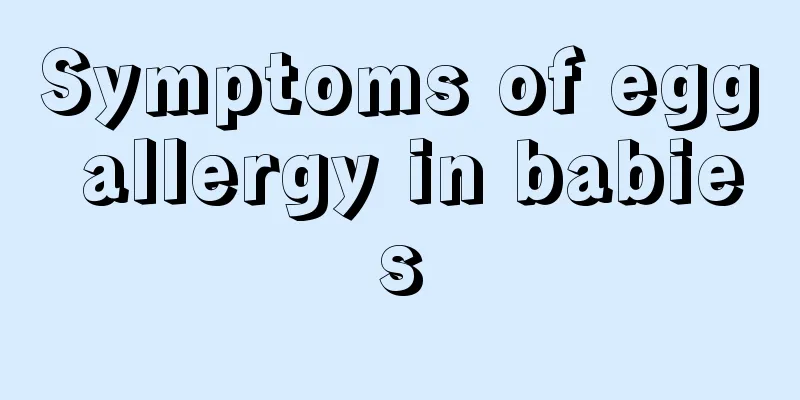Why does the child keep shaking his head?

|
Children will develop various symptoms as they grow up. If their mothers do not take good care of them, they will easily get sick. If you find your child shaking his head, you must solve the problem in time. Shaking the head is caused by muscle contraction. If the baby lacks calcium, the elasticity of the muscles will decrease, which is a manifestation of muscle spasm. Be sure to supplement your baby with calcium and vitamins, and give your child enough confidence. The baby shakes his head due to external factors during the growth process. 1. The indoor temperature may be too high, or the baby may be covered with too many quilts, causing him to be too hot. 2. When the baby does not accept new food, he will resist by shaking his head or pushing the food away with his hands to indicate that he does not want to eat. This just requires letting the baby try it slowly and many times. The baby has involuntary shaking of the head due to tics Clinical data show that children's head shaking is closely related to tics. And the manifestations of tics are diverse. Children with this condition suffer from attention deficit and learning difficulties. Their symptoms make them susceptible to ridicule, mockery, and isolation from their classmates, which hurts their self-esteem, makes them withdrawn, and may even retaliate against and become hostile to those who ridicule them. This can easily lead to extreme behavior and make them more likely to take the path of crime. If your child exhibits the following symptoms in addition to shaking his head, then your child is likely suffering from tics. 1. Eye muscle twitching: manifested as raising eyebrows, frowning, blinking, squinting, rolling eyes, staring, etc.; 2. Facial muscle twitching: manifested as grinning, pouting, shrinking nose, making weird faces, etc.; 3. Neck muscle twitching: manifested as nodding, shaking head, twisting neck, shrugging shoulders, etc.; 4. Symptoms of upper limb tics: shaking hands, raising arms, twisting arms, rubbing fingers, and clenching fists 5. Symptoms of lower limb tics: manifested as shaking legs, kicking legs, tiptoeing, spinning, abnormal gait, etc.; 6. Vocal twitching of the throat: manifested as abnormal sounds, such as dry coughs, clearing of the throat, roaring, or constant spitting, or stuttering, improper syllables, improper stress, involuntary obscenities, swearing, and dirty talk. In addition to the causes of childhood tics introduced above, some parents are worried that their children may be easily infected with bacteria and viruses outside, so they keep their children at home and rarely have contact with other children. Children who come into contact with too few people in their lives will become accustomed to being silent. Therefore, if a child lacks playmates, it may also cause late speaking. |
<<: Blue spots around the eyes, nose and mouth of newborn
>>: What are the effects of drinking coffee on children?
Recommend
How to prevent children's chapped skin and what to do if children have chapped skin?
Children's skin problems are not only related...
What should I do if my baby does not have a fever during the day but has a fever at night?
As we all know, colds and fevers are the most com...
Six-year-old child with ADHD
Children are generally very prone to ADHD, becaus...
What is the cause of the newborn's nasal congestion and shortness of breath?
Newborns cannot breathe through their mouths, so ...
The child fell and landed on his head
Children often run around, and if parents are not...
Oral muscle training for autism
There are many causes of autism, which most often...
Newborn baby not sleeping at night
Many parents may find that their children do not ...
One-year-old baby eating grapefruit
Grapefruit tastes sour and sweet, and it is very ...
The reason why red spots appear on the back of children
What causes red spots on the baby's back? The...
How to overcome phobia after a child is frightened?
I believe everyone knows that children’s hearts a...
What should I do if my child has bloating?
If some children have problems, then it is necess...
What to do about growing pains
Growing pains refer to the pain that our babies f...
Which department should children go to for circumcision?
Many parents of boys have found that their childr...
What causes pain in the knee of a child?
Children often suffer from knee pain, which troub...
What to do if your three-year-old baby doesn't like to eat
In daily life, as everyone's life will get be...









